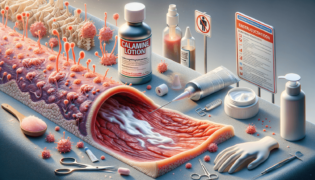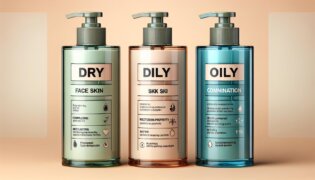No, it is not recommended to get Botox while on retinol. Retinol may cause skin sensitivity, and combining it with Botox can increase the risk of complications. Consult your dermatologist before undergoing Botox if you are using retinol-based products.
Botox and Retinol Safety
Retinol is known for its skin-rejuvenating properties but can lead to skin sensitivity. Botox injections, on the other hand, involve temporary muscle paralysis to reduce wrinkles and fine lines. Combining both treatments may increase the risk of complications, such as bruising, infection, or unwanted facial muscle relaxation.
Consulting a Dermatologist
Before undergoing Botox, it is crucial to inform your dermatologist about your retinol use. They may advise you to pause retinol-based products for a specific period before and after the Botox treatment, minimizing risk and optimizing results. At Skincare Logix, we recommend trusting the expertise of your dermatologist for tailored advice.
Handling Skin Tags
If your concern involves skin tags, these growths require a separate approach since Botox and retinol are not effective skin tags removers. Instead, consult a dermatologist who can recommend safe and effective skin tag removal methods for your individual needs.
Skincare Logix – Your Skincare Guide
For more information about Botox, retinol, and other skincare concerns, visit the Skincare Logix blog. Our expert advice will help you make informed decisions on your skincare journey, including choosing the best skin tags remover options and other treatment alternatives.
Can I Get Botox While On Retinol?
The quest for youthful, wrinkle-free skin often leads individuals to explore various treatments, including Botox and retinol. However, many people wonder whether these two popular treatments can be combined safely. The answer is no; it is not recommended to get Botox while on retinol, and here’s why:
The Dynamic Duo – Botox and Retinol
Botox is a minimally invasive procedure that smoothes out wrinkles and fine lines by temporarily paralyzing the underlying facial muscles. Retinol, a derivative of vitamin A, is a powerhouse skincare ingredient that boosts cell turnover, promotes collagen production, and exfoliates the skin by penetrating deeply into the epidermis.
Using retinol consistently can improve skin texture and diminish signs of aging, while Botox offers instant relief from unwanted facial lines and creases. They may seem like a match made in heaven, but combining them can lead to potential complications.
The Risks of Combining Retinol and Botox
Retinol is known for its potent, transformative effects on the skin. However, it can also cause sensitivity, irritation, and inflammation, especially during the initial phases of use. Combining retinol with Botox injections can potentially increase the risk of side effects such as:
- Bruising
- Infection
- Redness and swelling
- Unwanted muscle relaxation in the treatment area
Skincare Logix Tips for Botox and Retinol Users
When planning to get Botox injections, consult with your dermatologist and share your skincare routine, including retinol use. The dermatologist will discuss the appropriate plan of action to minimize risks and optimize results. They may suggest the following steps:
- Discontinuing retinol for a specific period before and after the Botox injections
- Using a lower concentration of retinol to reduce skin sensitivity
- Incorporating gentle, hydrating, and soothing skincare products to support the skin’s healing process
FAQs About Botox and Retinol
In this FAQ section, we will address common questions related to combining Botox and retinol treatments. We hope this information will be helpful for those seeking optimal skincare solutions and improve their overall results.
1. How long before a Botox treatment should I stop using retinol?
A dermatologist will typically recommend pausing retinol use for about 1-2 weeks before and after your Botox injections. This helps minimize skin sensitivity, irritation, and potential complications. However, it’s crucial to follow the advice of your dermatologist based on your individual needs and skin type.
2. Can I resume using retinol after receiving Botox treatments?
Yes, you can resume using retinol after getting Botox, but it’s recommended to wait for about 1-2 weeks following the injections. This allows your skin to heal and adjust to the Botox treatment. Be sure to consult your dermatologist for personalized advice on when to restart retinol use.
3. Are there alternative anti-aging treatments I can consider without discontinuing retinol?
Yes, there are alternative anti-aging treatments that can be used alongside retinol. These options include chemical peels, laser treatments, microdermabrasion, and dermal fillers. Consult your dermatologist to discuss which treatment is suitable for your skin type, goals, and current skincare routine.
4. Can I use retinol with other cosmetic injectables other than Botox?
Combining retinol with other cosmetic injectables like dermal fillers can have similar risks as with Botox. It is best to consult your dermatologist on how to safely integrate retinol with any injectable treatments in your skincare regimen, ensuring optimal results and minimizing potential complications.
5. Can retinol cause any long-term side effects or complications if used alongside Botox?
Retinol use combined with Botox may increase short-term complications like bruising or skin irritation. However, there is no conclusive evidence to suggest long-term side effects. As long as you follow your dermatologist’s advice on when to pause and resume retinol use, you can minimize the risk of complications and enjoy the benefits of both treatments.




















